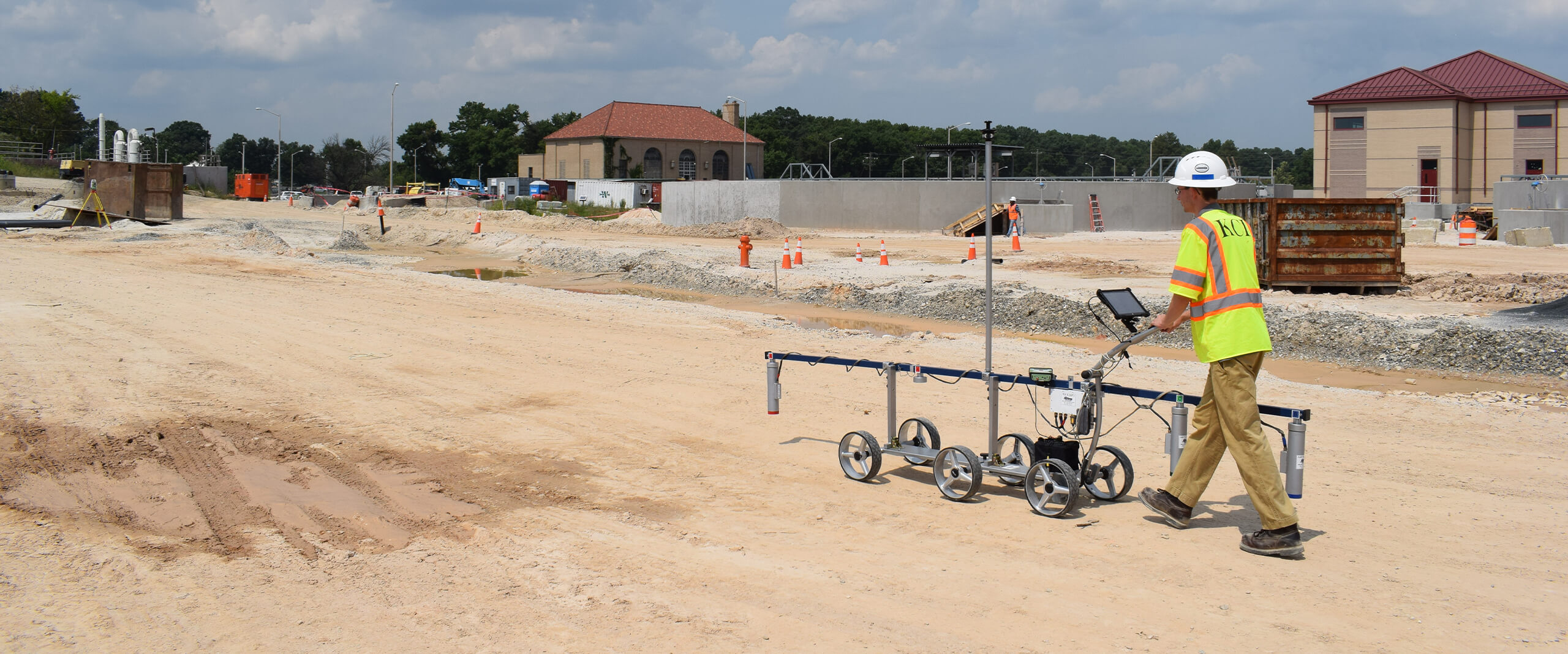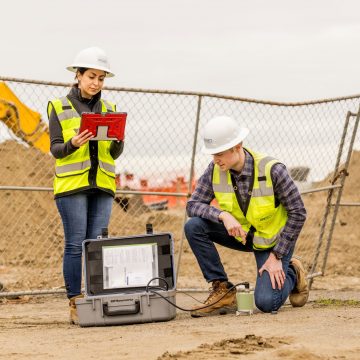An In-depth Introduction of the Trick Obligations of Geotechnical Designers in Website Characterization and Ground Improvement Techniques for Engineering Solutions
Geotechnical engineers are indispensable to the effective implementation of design tasks, charged with the vital obligations of website characterization and the application of ground renovation methods. Their job involves a complete analysis of subsurface conditions, utilizing numerous testing approaches to determine soil and rock properties.
Role of Geotechnical Engineers
Geotechnical engineers play a crucial function in the design and building of infrastructure by evaluating the behavior of soil and rock below the surface area - geotechnical eng. Their responsibilities encompass examining subsurface problems to educate layout choices that guarantee structural stability and safety and security. By performing thorough analyses of dirt properties, consisting of shear leaks in the structure, toughness, and compressibility, geotechnical engineers give important information that influences the selection of appropriate construction materials and strategies
In enhancement to assessing soil auto mechanics, geotechnical engineers are tasked with identifying potential threats such as landslides, sinkholes, and ground negotiations. Their competence assists alleviate risks related to these geotechnical phenomena, therefore protecting both the environment and public safety and security. They likewise work together closely with other engineering disciplines, making certain that geotechnical factors to consider are integrated right into general job design.
Additionally, geotechnical engineers participate in the analysis of existing frameworks, supplying suggestions for retrofitting and repair services when essential. Their comprehensive understanding of soil-structure interaction is important for the growth of sustainable framework options. In general, the duty of geotechnical engineers is integral to the effective understanding of building jobs, guaranteeing they are secure, long lasting, and compliant with regulative criteria.

Website Characterization Procedures
Efficient website characterization processes are vital for comprehending the subsurface conditions that affect task style and execution. Geotechnical designers use a systematic strategy to gather, assess, and translate information regarding groundwater, soil, and rock characteristics. This process starts with a complete evaluation of existing literary works and historic website data, supplying understandings right into previous site conditions and prospective difficulties.

Data evaluation adheres to fieldwork, where designers use geostatistical techniques to translate searchings for and create geological models. With diligent website characterization, geotechnical engineers lay the foundation for effective project implementation, enhancing and reducing unanticipated problems source appropriation.
Dirt and Rock Screening Techniques
While comprehending subsurface problems is critical, the option of ideal dirt and rock testing methods is similarly vital for accurate evaluation and layout. Geotechnical engineers employ a variety of testing techniques to assess the physical and mechanical residential properties of soil and rock materials.
Research laboratory tests, such as Atterberg limits, grain dimension analysis, and unconfined compressive stamina tests, give essential data on soil habits under different dampness conditions and filling scenarios. These examinations aid determine soil category and anticipate negotiation or shear strength characteristics important for structure layout.
In-situ screening approaches, consisting of Requirement Infiltration Examinations (SPT), Cone Infiltration Tests (CPT), and stress moved here meter tests, permit engineers to collect information straight from the ground. These approaches provide beneficial insights right into the soil's thickness, uniformity, and stratification without the demand for comprehensive sampling.
Rock testing typically involves core sampling and laboratory analysis to evaluate buildings like uniaxial compressive strength and rock high quality classification (RQD) Together, these dirt and rock screening methods make it possible for geotechnical engineers to make informed decisions concerning site-specific difficulties, guaranteeing the security and security of engineering remedies.
Ground Enhancement Techniques
Ground improvement methods are vital for improving the engineering buildings of soil, thus enhancing its load-bearing capacity and lowering negotiation. These methods are important in dealing with obstacles presented by weak or bothersome dirts, which can significantly influence the security and toughness of frameworks.
Numerous ground improvement methods are utilized, including compaction, grouting, and dirt stabilization. Compaction involves boosting the thickness of soil with mechanical methods, which improves its shear strength and minimizes compressibility. Grouting, on the various other hand, includes injecting a liquid product into the ground to fill gaps and enhance dirt communication. This method is especially reliable for dealing with loosened sands or fractured rock.
Soil stabilization incorporates a variety of approaches, from chemical additives to mechanical therapies, targeted at enhancing the dirt's resistance to erosion and contortion. Strategies such as lime stabilization or cement blending alter the buildings of the dirt at a particle level, improving its total performance.
Importance of Geotechnical Evaluations
Geotechnical assessments play a vital function in the planning and style of engineering tasks, as they provide vital details about the subsurface conditions. Understanding dirt homes, rock formations, groundwater levels, and potential geohazards is essential for making certain the stability and safety and security of structures. These assessments make it possible for designers to make educated decisions pertaining to site selection, design criteria, and building methodologies.
The value of geotechnical assessments expands beyond first task phases; they are instrumental in threat administration and read review expense performance. By determining possible issues early, such as dirt settlement, incline instability, or extreme groundwater, engineers can design proper mitigation strategies, lowering the possibility of pricey delays and architectural failures. These evaluations sustain conformity with regulatory requirements and enhance the sustainability of design methods.

Conclusion
To conclude, geotechnical designers are vital to guaranteeing the security and stability of design tasks via comprehensive site characterization and ground renovation strategies. civil consulting engineers. Their organized strategy to evaluating subsurface conditions, combined with their recommendations for reliable ground modification, considerably enhances soil residential or commercial properties and load-bearing capability. The expertise of geotechnical engineers not just assists in enlightened job planning but additionally makes certain conformity with regulations and fosters effective communication amongst stakeholders, eventually adding to successful engineering results
Geotechnical engineers play a crucial function in the design and building and construction of infrastructure by evaluating the behavior of soil and rock underneath the surface. By performing in-depth evaluations of soil properties, consisting of shear toughness, permeability, and compressibility, geotechnical designers offer important data that affects the option of suitable building and construction materials and techniques.
In addition to examining soil auto mechanics, geotechnical designers are charged with identifying prospective hazards such as landslides, sinkholes, and ground settlements. Geotechnical designers employ an organized method to collect, assess, and analyze data pertaining to rock, dirt, and groundwater qualities. By determining possible issues early, such as soil negotiation, incline instability, or excessive groundwater, engineers can design suitable reduction methods, reducing the probability of structural failings and expensive hold-ups.
Comments on “Necessary Top Qualities of Effective Civil Consulting Engineers”